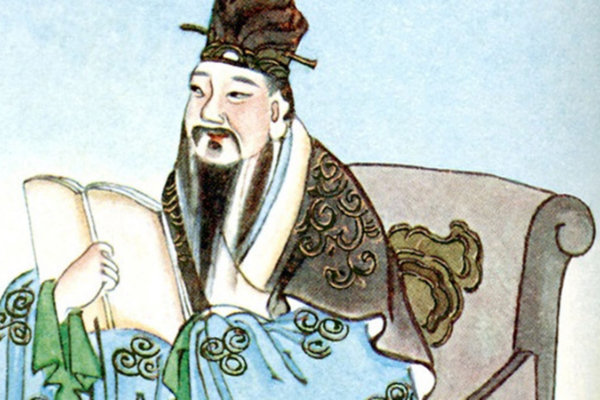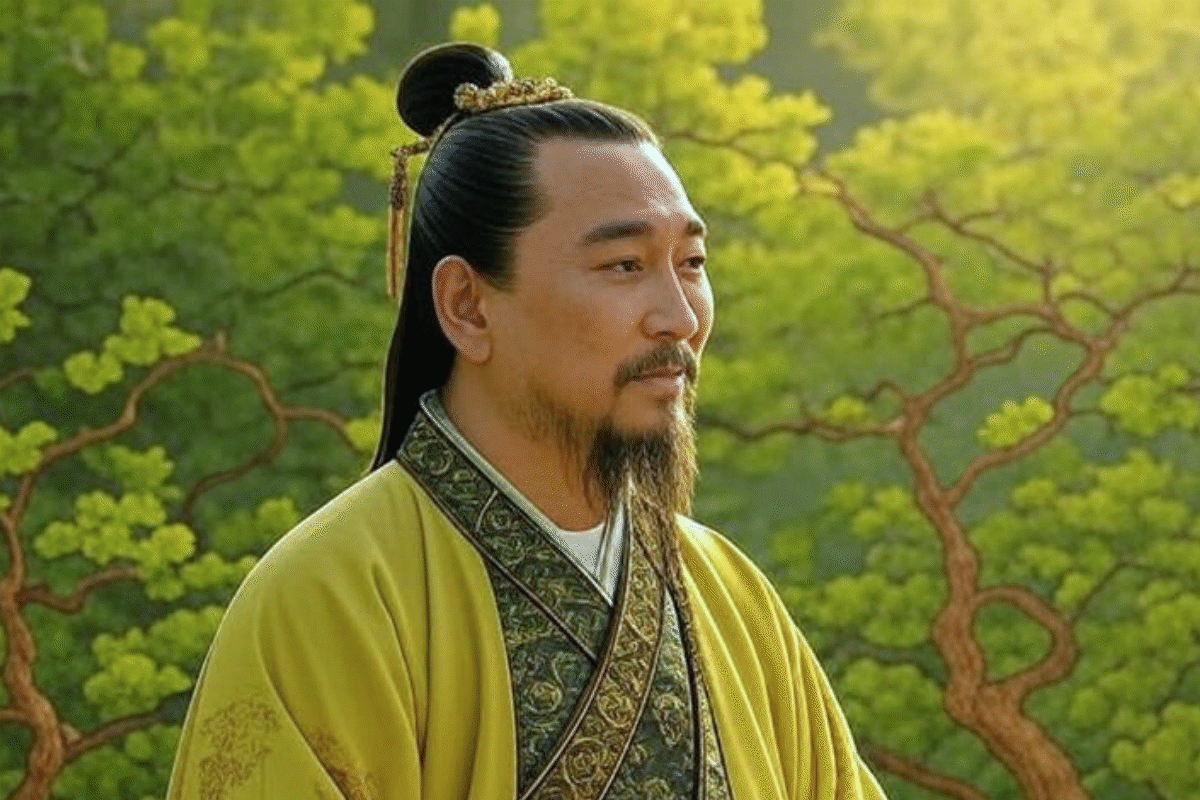Mencius, the philosopher of the human heart
In the tumultuous Warring States period of China (475-221 BCE), where kingdoms relentlessly vied for supremacy, one man rose up to defend an idea as simple as it was profound:
human nature is fundamentally good.
This man was Mencius, or Mengzi (372-289 BCE), considered the second great thinker of Confucianism after Confucius himself. His work, recorded in the ‘Mencius,’ one of the Four Books of the Confucian canon, continues to inspire generations with its belief in the innate goodness of humankind and its vision of a harmonious society founded on virtue.
A heir of Confucius
Born in the state of Zou, not far from Confucius’s birthplace, Mencius grew up in the spiritual shadow of the great master. It is said that he studied under a disciple of Zi Si, Confucius’s grandson, absorbing Confucian teachings which he then sought to defend and adapt to the realities of his time. At a time when China was torn apart by wars and rivalries, Mencius embarked on a journey through the kingdoms, searching for an enlightened ruler, a “wise king” capable of embodying the ideals of justice and benevolence. His dialogues with princes, full of wisdom and sometimes audacity, are recorded in the Mencius, a collection of seven books named after his principal interlocutors.
Unlike Confucius, whose teachings were often austere and focused on ritual, Mencius approached philosophy with a warm humanity, emphasizing the human heart. He believed that kindness was a seed present in every individual, ready to germinate if the conditions were right. This conviction set him apart from other thinkers of his time, such as the followers of Mozi, who advocated universal love without distinction, or those of Yang Zhu, who prioritized individualism. Mencius, for his part, defended a Confucianism rooted in social hierarchies and moral virtues.
A childhood shaped by virtue
The story of Mencius is also that of his mother, a legendary figure in Chinese tradition. Determined to provide her son with an environment conducive to his development, she moved three times to escape harmful influences. In a neighborhood of gravediggers, young Mencius played at digging miniature graves; near the slaughterhouses, he imitated the butchers. Finally, she settled near a school, where the child found a favorable environment for his education.
Another famous story highlights this mother’s wisdom. One day, seeing Mencius return home early from school, she cut in two a piece of fabric she had been carefully weaving. Seeing her son’s astonishment, she explained, “By abandoning your studies, you are doing exactly as I am: destroying precious work.” Moved by this lesson, Mencius returned to his studies with fervor, laying the foundations for his future greatness.
The goodness in the heart of Man
At the heart of Mencius’s philosophy lies a revolutionary idea for his time: that humans are born with an innate moral sense. To illustrate this principle, he evokes a universal scene: if someone sees a child about to fall into a well, their first reflex will be to panic and want to save them, not out of self-interest or fear of judgment, but out of pure compassion. This spontaneous reaction, according to Mencius, reveals humanity’s natural goodness. “Without a compassionate heart, one is not human,” he asserted, making compassion, shame, humility, and discernment the four pillars of humanity.
For Mencius, morality distinguishes humans from animals. But this innate goodness can be stifled by a poor environment or adverse circumstances. Education, therefore, does not consist of imposing strict rules, but of cultivating these natural virtues, like a gardener tending a plant without forcing it to grow. He illustrates this idea with the parable of the Song dynasty man, who, impatient to see his shoots grow, pulled them upwards and destroyed them. To force human nature is to destroy it; education must be patient and respectful of each individual’s pace.
A humanist political vision
Mencius was not content with merely reflecting on the individual; he wanted to transform society. In an era marked by wars and the selfishness of rulers, he advocated for a benevolent government, guided by virtue.
According to him, a sovereign derives his legitimacy from the “Mandate of Heaven,” but this mandate is manifested through the support of the people. A king who neglects the well-being of his subjects loses this legitimacy, and the people have the right to revolt, even to overthrow him.
This audacious, almost revolutionary idea made Mencius a strikingly modern political thinker.
He urged rulers to govern by example, cultivating virtue and educating their people. A prosperous state, he believed, rests on morally educated citizens, capable of compassion and integrity.
Unfortunately, the princes he encountered, more preoccupied with war than with peace, remained deaf to his appeals. Disappointed, Mencius withdrew to devote himself to teaching, training disciples in a private school where he transmitted his ideals.
A timeless legacy

“He who goes to the very depths of his heart knows his human nature. To know one’s human nature is then to know heaven.”
The Mencius, with its lively dialogues and accessible anecdotes, remains a major work of Chinese thought.
Translated into French by scholars such as Guillaume Pauthier and André Lévy, it continues to inspire through its faith in human goodness and its call for a just society. In Korea, where it is called “Maeng-ja,” and in Japan, where it is known as “Mǒshi,” its influence endures in education and culture.
Mencius reminds us that morality is not an external constraint, but an inner strength that simply needs to flourish.
In a world often chaotic, its message still resonates: believing in the goodness of humankind paves the way for a better future. Like a well-cultivated plant, humanity can flourish if given the love, patience, and care it deserves.







0 Comments